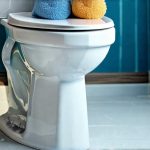Living with bladder unpredictability—whether due to conditions like overactive bladder, interstitial cystitis, neurological issues, or simply anatomical variations—can significantly impact daily life. It’s more than just frequent trips to the restroom; it’s a constant mental calculation, a negotiation between desired activities and potential urgency. Many individuals find themselves structuring their entire day around their bladder, often leading to social anxiety, reduced spontaneity, and limitations on what they can comfortably do. This isn’t about accepting restriction as inevitable, though. It’s about proactively adapting and gaining control – not over the bladder itself necessarily, but over how you manage its unpredictability so it has less power over your life.
The key to thriving with a variable bladder lies in understanding your personal patterns and building a schedule that anticipates, rather than reacts to, potential issues. This requires self-observation, honest assessment, and a willingness to experiment. There’s no one-size-fits-all solution; what works for one person may not work for another. The following information aims to provide practical strategies and considerations for scheduling your day in a way that minimizes stress and maximizes independence, focusing on creating a life where bladder predictability (or the lack thereof) doesn’t define your limitations. It’s about regaining agency and living more fully, even with this ongoing consideration.
Understanding Your Bladder’s Rhythm
The first step toward effective scheduling is deep self-awareness. Many people assume their bladder is simply “bad,” but it’s often a matter of understanding when and why issues arise. Keep a detailed bladder diary for at least a week, preferably two. This isn’t just logging trips to the bathroom; it’s about recording everything that might influence your bladder function.
- Note the time of each urination, along with its volume (estimate if necessary).
- Record what you ate and drank in the preceding hours, including caffeine, alcohol, carbonated beverages, and acidic foods.
- Document your activity level – were you sitting, standing, walking, exercising?
- Pay attention to emotional state; stress and anxiety can significantly impact bladder control.
- Include any relevant medical information or medications.
After a week or two, analyze the diary for patterns. Do you notice urgency consistently after drinking coffee? Does exercise exacerbate symptoms? Are there certain times of day when your bladder feels more sensitive? Identifying these triggers and trends is crucial. This isn’t about eliminating things you enjoy; it’s about understanding how they affect your body so you can plan accordingly. For example, if you know coffee consistently causes urgency within 30 minutes, you might choose to drink it at a time when you have easy access to a restroom or are already planning minimal activity. Understanding how diet impacts bladder health can be further explored by reviewing foods that promote bladder calm.
Scheduling Strategies for Increased Confidence
Once you understand your bladder’s tendencies, you can start incorporating proactive scheduling techniques. This doesn’t mean rigid adherence to a strict timeline; flexibility is still important. Instead, focus on building buffer zones and anticipating potential needs. Consider “pre-emptive voiding” – going to the restroom even if you don’t feel an urgent need, especially before activities where access might be limited. This can provide peace of mind and reduce anxiety.
Plan your day around activities that are less stressful for your bladder. For instance, if long periods of sitting trigger discomfort, schedule frequent short breaks to stand and move around. If travel is a concern, map out restroom locations along your route before you leave. Don’t be afraid to adjust plans as needed; it’s better to modify an activity than to experience unnecessary stress or accidents. Accept that some days will be better than others, and don’t beat yourself up over setbacks. To maximize your day, consider strategies for productive days while prioritizing bladder health.
Managing Travel & Outings
Traveling can be particularly challenging for those with bladder unpredictability, but careful planning can mitigate stress. Before leaving home:
1. Research restroom availability at your destination – many venues now list accessibility information online.
2. Pack a change of clothes and any necessary absorbent products as a precaution.
3. Limit fluid intake in the hours leading up to travel, but don’t dehydrate yourself entirely; maintaining some hydration is crucial for overall health.
During the journey:
1. Utilize restroom breaks whenever available, even if you don’t feel an urgent need.
2. Communicate your needs to companions – let them know you might need frequent stops or a quick exit strategy.
3. Avoid beverages known to trigger urgency during travel.
Remember that planning for the worst doesn’t mean expecting it; it simply means being prepared so you can handle unforeseen circumstances with grace and minimize disruption.
Work & Productivity Considerations
Work environments often demand sustained focus and limited breaks, which can be difficult when managing bladder issues. Open communication with your employer is essential – consider discussing potential accommodations, such as flexible work arrangements or access to a private restroom. Don’t feel ashamed to request what you need; many employers are willing to support employees facing health challenges.
- Schedule regular bathroom breaks throughout the workday, even if it means stepping away from your desk briefly.
- Avoid prolonged sitting by incorporating movement into your routine – take short walks during lunch or between meetings.
- If remote work is an option, leverage that flexibility to manage your bladder more effectively.
- Be mindful of caffeine and fluid intake at work; adjust consumption based on your individual tolerance. Prioritize self-care and avoid pushing yourself beyond your limits. To better understand the connection between diet and bladder function, explore meal planning around urination schedules.
Building Resilience & Coping Mechanisms
Living with bladder unpredictability can be emotionally draining. It’s essential to develop coping mechanisms to manage stress, anxiety, and potential feelings of isolation. Mindfulness techniques, such as deep breathing exercises or meditation, can help calm the nervous system and reduce urgency sensations.
- Seek support from others – connect with online communities or join a local support group for people living with similar conditions.
- Consider talking to a therapist or counselor to address any emotional challenges you’re facing.
- Practice self-compassion; be kind to yourself and acknowledge that managing bladder issues is an ongoing process.
- Focus on what you can control – your scheduling, your coping mechanisms, and your attitude towards living with unpredictability. Remember, bladder issues don’t define who you are. They’re simply a part of your life, and you have the power to navigate them with resilience and grace. Managing anxiety is key, so consider learning about ways to manage bladder-related anxiety.
Furthermore, establishing a calming evening routine can contribute significantly to overall bladder health; explore evening routines for relief.





















